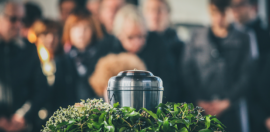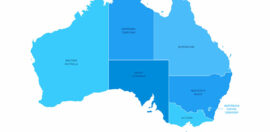Racism, coronavirus and collective trauma

Photo by Koshu Kunii on Unsplash.
12 August 2020 at 6:51 pm
Dr Cathy Kezelman AM looks at how the events around the world over the past few months, abuses of power, inequality and injustice are driving our individual and collective trauma.
According to the World Health Organisation, the coronavirus pandemic is escalating around the world. In Australia, better off than most, we are far from immune. As complacency creeps in, our 24-hour news and social media cycles ensure our flooding exposure to the massive human toll of COVID-19-related fear, panic, loss and… trauma.
Trauma is an event or events which threaten to overwhelm our capacity to cope. It is also the impact of the event. Much of the world is overwhelmed. World leaders are overwhelmed. Systems are overwhelmed. Whether it is swamped health systems, mass graves, economic disaster, or the mayhem of not knowing, chaos abounds. In COVID-19, the world is facing a rampant threat, which currently has no cure or proven prevention regime. It is a threat which, for now, we cannot control.
Trauma which affects groups of people or nations is called collective trauma. The world is currently gripped by collective trauma related to COVID-19. Not only is this compounding prior traumas but it is igniting additional traumas, as countries, states and groups of people try to regain power and control.
Individual and collective trauma flourishes when there are abuses of power, inequality and injustice. 2020 is a time of political instability and social disruption and these are driving disempowerment, inequality and injustice. Sadly, as the world grapples with the trauma and adversity of COVID-19 additional trauma is being spurned by individual and systemic oppression, aggression and racial discrimination.
Racial division is not new – human beings have punished differences for millennia. “Othering” seems to be in our DNA. Yet while the world fights to contain a morphing microbial enemy, issues of racism, discrimination and oppression are front and centre. The brutal death of George Floyd at the hands of the police has ignited protests around the world. Oppressive regimes are flexing their muscles. Violence within homes, between systems and within and between nations abounds.
As Nobel Peace Prize recipient Desmond Tutu once said: “Differences are not intended to separate, to alienate. We are different precisely in order to realise our need of one another.” The world is facing a crisis of individual and collective conscience. As the Black Lives Matter protests deliver vital messages for solidarity and change, further violence erupts.
We have a choice. To join together to build a world of safety and connection, and together battle oppression, discrimination and threat. Or to continue to pursue individual and collective self-interest and the polarisation of difference with its attendant cruelty and cumulative losses.
Within Australia our First Nations People have experienced generations of individual and collective trauma. This has shattered bonds between families and kin – land and place. The loss of cultural identity and safety spans generations. The repercussions of experiences akin to those of our First Nations people are repeatedly replicated across time for different groups of people.
It is a time for us to listen and hear our Aboriginal brothers and sisters, to understand the trauma they have experienced and continue to experience. And it is also a time to honour all peoples and particularly those who are especially vulnerable – people with disability, asylum seekers, refugees, people living in poverty and compounded disadvantage.
We are all human beings. As such we share a common humanity. And we share a common vulnerability. This is a common vulnerability to coronavirus. It is also a common vulnerability to trauma and the way it plays out when challenges hit.
It is predicted that the world will ultimately control the contagion of coronavirus. But what is at least as pressing is the need for the world to contain the contagion of injustice, discrimination, compounded disadvantage and escalating trauma. It is time for us, as the human race, to embrace our commonalities and stop fuelling the additional individual and collective trauma we, as human beings, repeatedly fuel – in Australia and globally.







